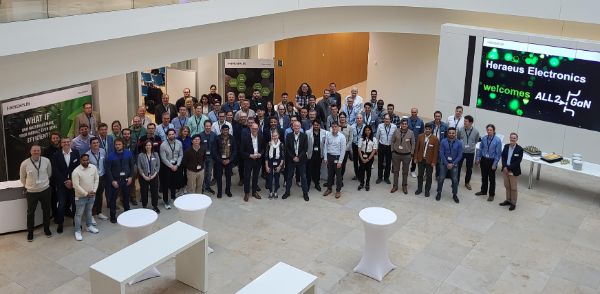GaN chips present unique challenges and opportunities for packaging technologies, including significant reductions in bond pad size. At the ALL2GaN event, industry professionals and experts will come together to explore these advancements and their implications. Heraeus Electronics will showcase its latest innovations tailored to meet the demands of miniaturization and high power density required by GaN chips.
During the event, Heraeus Electronics will highlight its Fine Pitch Sinter pastes and an adapted Die Top System / Bonding wires, designed to optimize the performance of GaN chips. The company has already made significant progress in processing GaN semiconductors, with promising results indicating superior shear forces and enhanced robustness with pressure sinter pastes.
Preliminary test results with finer Cu and Al wires have been promising, and prototype samples with small Die Top Systems have been successfully produced. Heraeus Electronics is actively collaborating with customers to refine layout designs, ensuring optimal performance and reliability.
Michael Jörger, Global Head of Business Line Power Electronic Materials, emphasizes the importance of ALL2GaN for Heraeus Electronics, stating, "The participation in such joint projects is one pillar of success in order to develop and introduce innovative materials for power electronics faster and even more successfully."
For further details and media inquiries about the ALL2GaN event and Heraeus Electronics' role in advancing GaN technology, please contact Manuel Fischer (manuel.fischer@heraeus.com), Press Contact for Heraeus Electronics. Discover more about the ALL2GaN project at the official project website: https://www.all2gan.eu/home
For more information about the ALL2GaN project, please visit the official project website: https://www.all2gan.eu/home .
For additional information on Heraeus Electronics and their contributions to semiconductor technology,
visit www.heraeus-electronics.com .
This project is supported by the Chips Joint Undertaking under grant agreement no 101111890 and Austria, Belgium, Czech Republic, Denmark, Germany, Greece, Netherlands, Norway, Slovakia, Spain, Sweden and Switzerland.
Funded by the European Union. Views and opinions expressed are however of the author(s) only and do not necessarily reflect those of the European Union, Chips JU or the national granting authorities. Neither the European Union nor the granting authorities can be held responsible for them.
In Germany, this project is co-funded by the Federal Ministry of Education and Research (project no. 16MEE0286).
